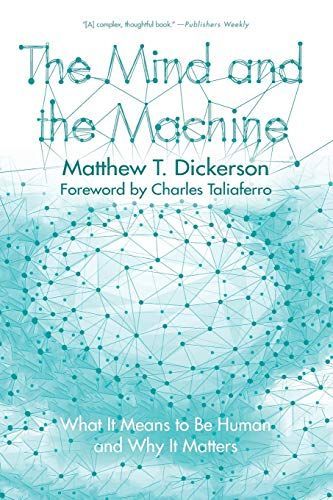
The Mind and the Machine What It Means to Be Human and Why It Matters
Are humans just complex biochemical machines, mere physical parts of a causally closed materialist universe? Are we approaching the so-called "Singularity" when human consciousness can (and will) be downloaded into computers? Or is there more to the human person--something that might be known as soul or spirit? As this book makes clear, the answers to these questions have profound implications to topics such as heroism, creativity, ecology, and the possibility of reason and science. In exploring this important topic, Dickerson engages the ideas of some well-known twentieth- and twenty-first-century espousers of physicalism, including philosopher Daniel Dennett (Consciousness Explained), biologist Richard Dawkins (The God Delusion), futurist-engineer Raymond Kurzweil (The Age of Spiritual Machines), psychologist B. F. Skinner (Beyond Freedom and Dignity), and mathematician-philosopher Bertrand Russell (Why I Am Not a Christian). Through a careful reading of their works, Dickerson not only provides a five-fold critique of physicalism, but also offers a Christian alternative in the form of "integrative dualism," which affirms the existence of both a physical and spiritual reality without diminishing the goodness or importance of either, and acknowledges that humans are spiritual as well as bodily persons.